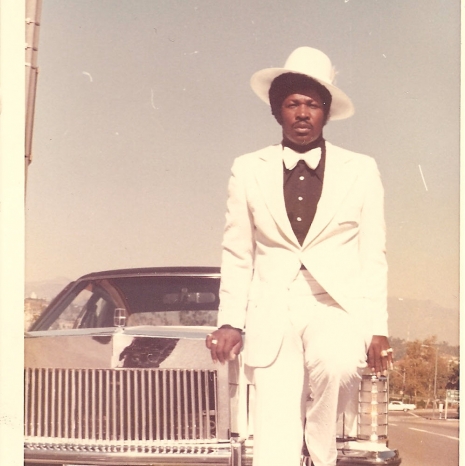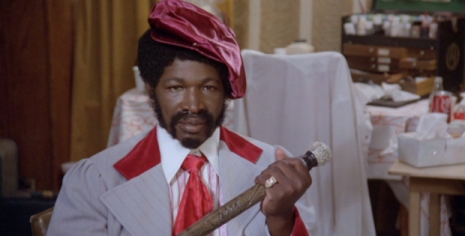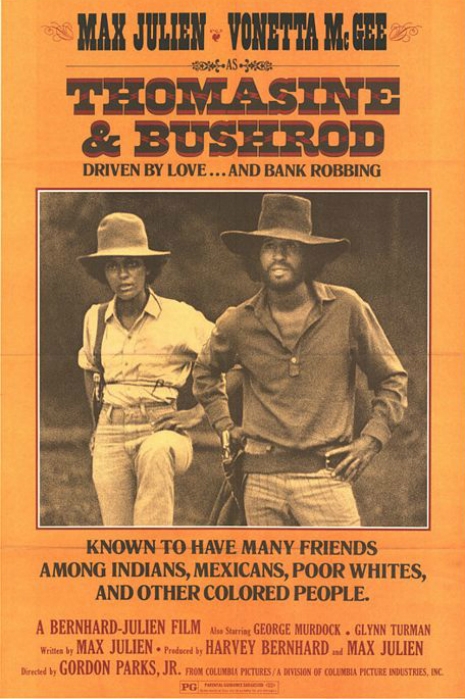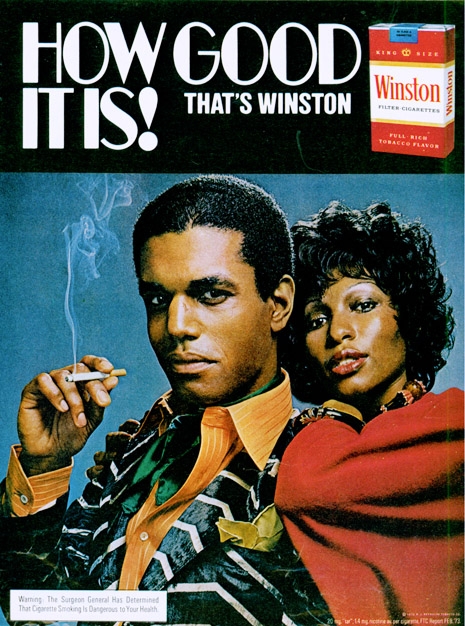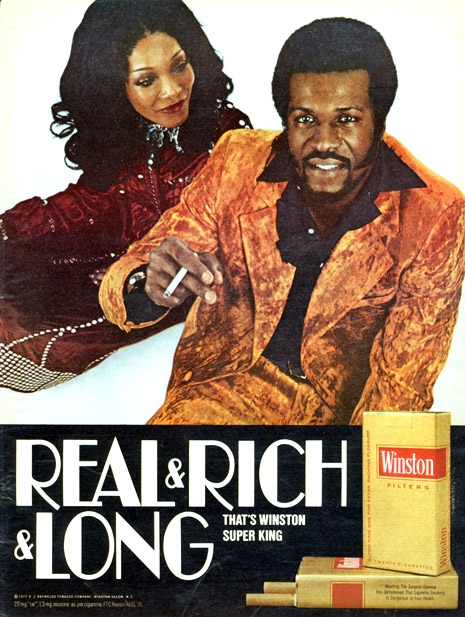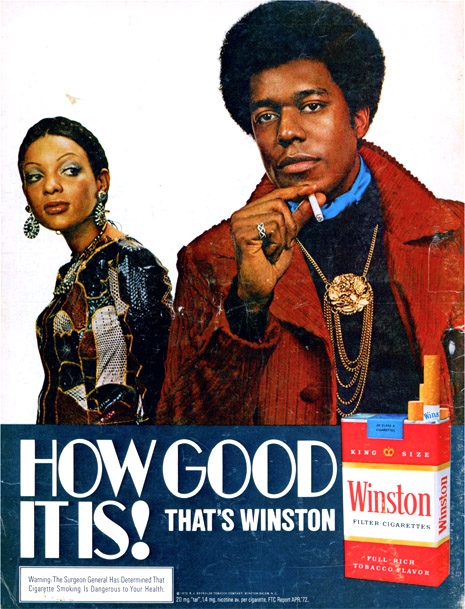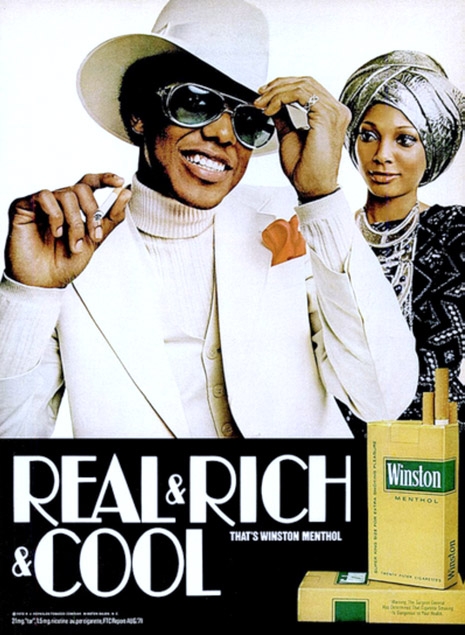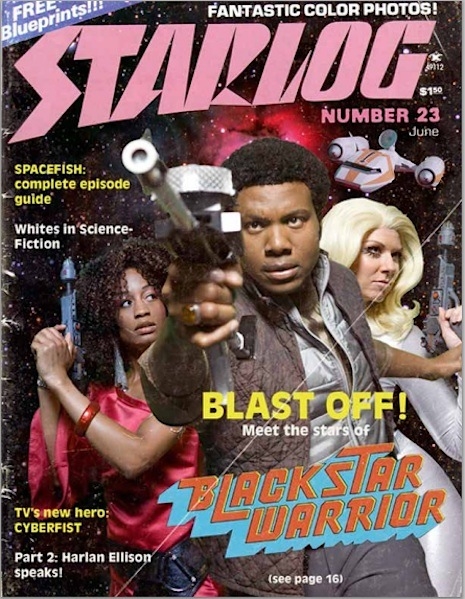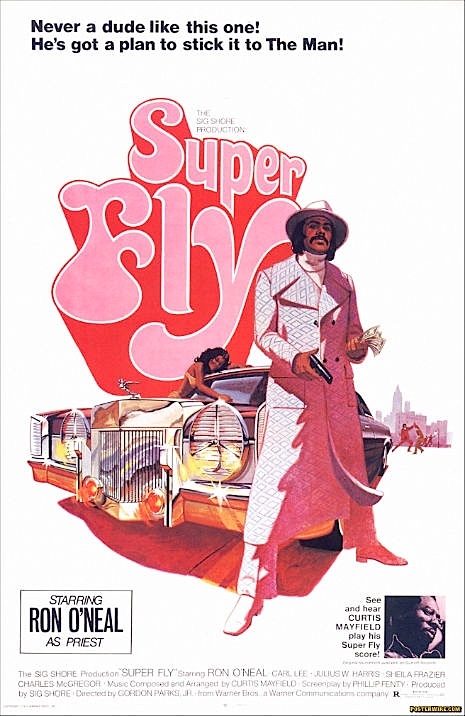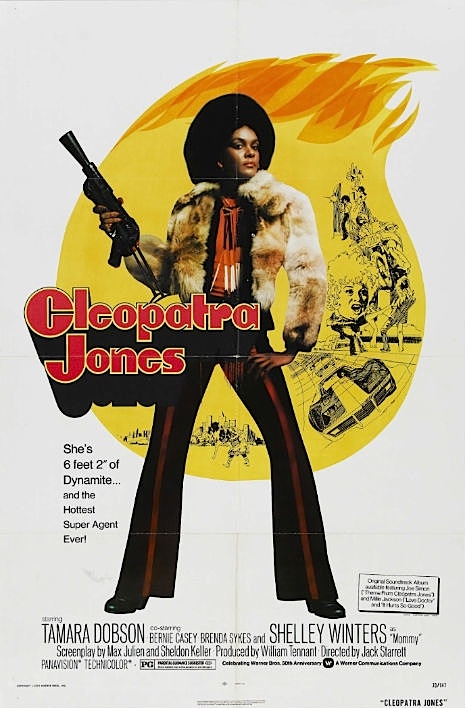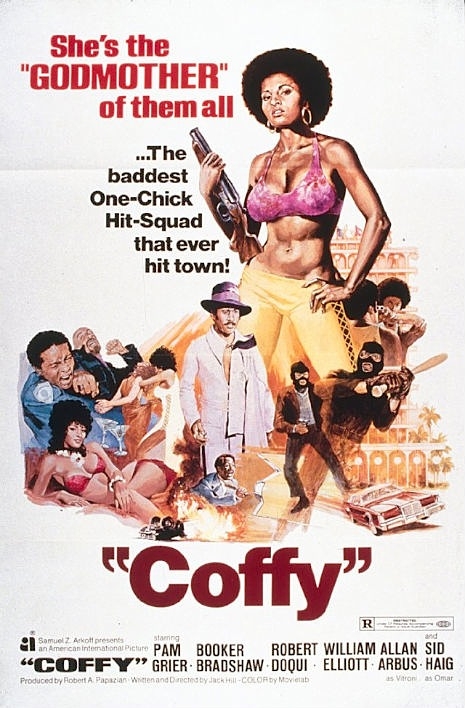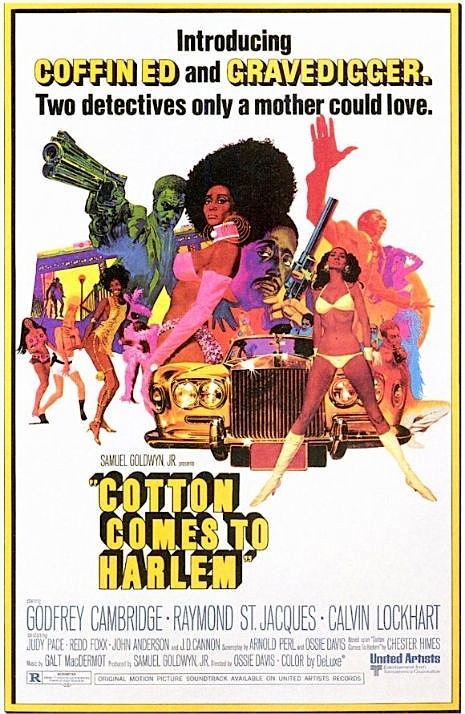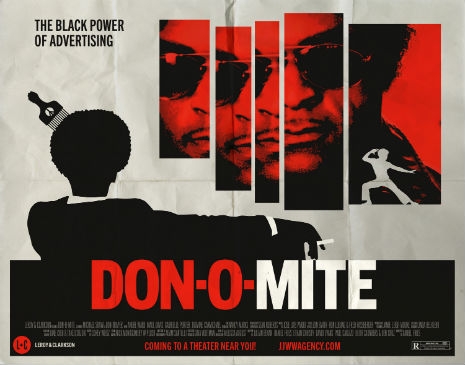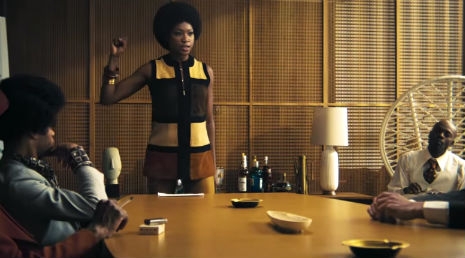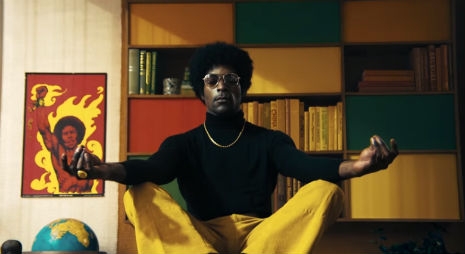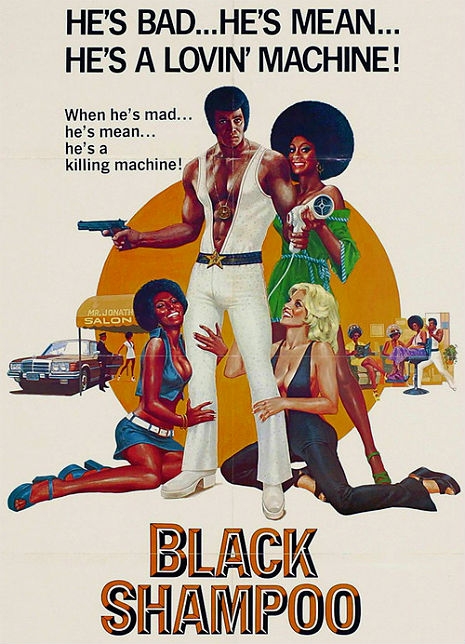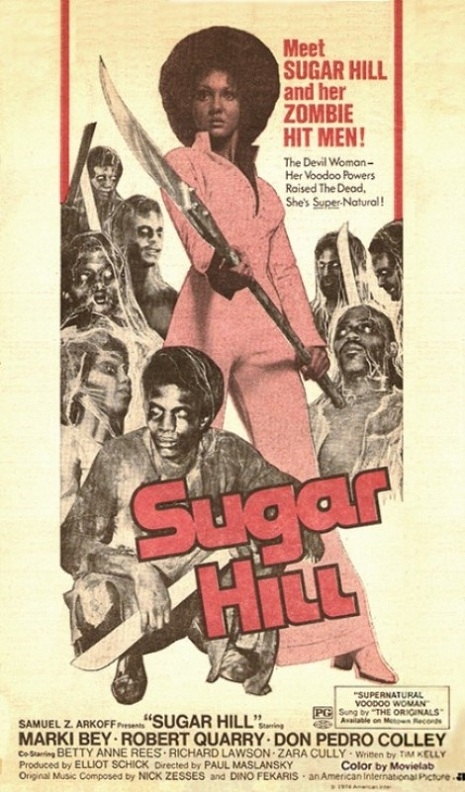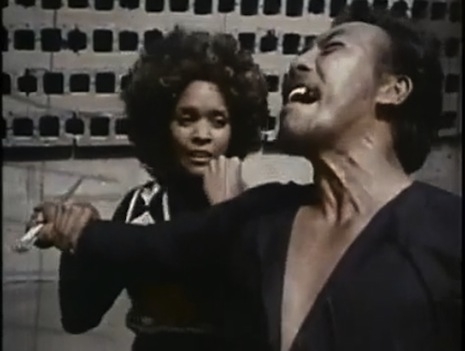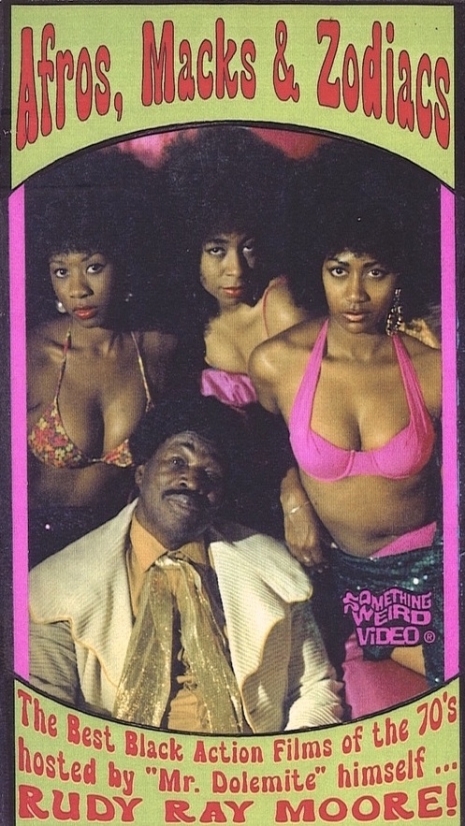
It was recently announced that Eddie Murphy is playing comedian/actor Rudy Ray Moore in the upcoming Netflix bio pic, Dolemite Is My Name. Moore first gained notoriety for his ‘70s comedy records that were so racy they had to be sold under the counter. On these albums, he told raunchy stories about the larger than life figure, “Dolemite,” which he delivered in a rhyming fashion that influenced rap. Moore subsequently took on the role of the character in his act and on screen. He starred in such classic blaxploitation pictures as Dolemite (1975), Petey Wheatstraw (1977), and Disco Godfather (1979). Moore died in 2008.
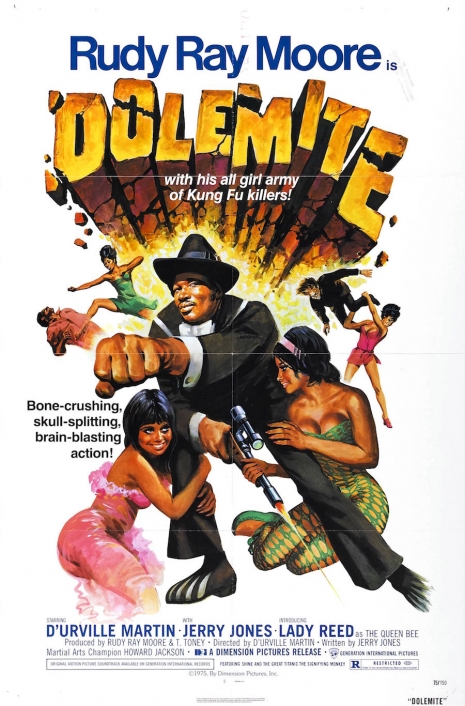
In the mid-1990s, with renewed interest in blaxploitation cinema, Rudy Ray Moore experienced a career renaissance. In 1995, I went to a Detroit-area screening of Dolemite, featuring an appearance by Moore. Though he walked with a cane, once he hit the stage he became Dolemite, slinging rhyme after rhyme like in his prime, and hurling lewd insults at audience members who weren’t expecting to be roasted by the man. It was something else. Afterwards, he was selling merchandise and such in the lobby, incredulous that no one was interested in the unrelated porno tapes he was offering. Good times.
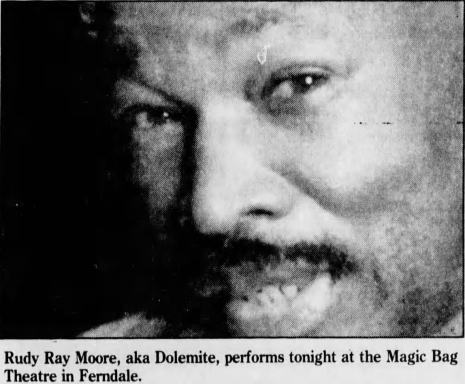
It was during this period that Something Weird Video put out Afros, Macks & Zodiacs – Volume 1 , a compilation of blaxploitation trailers featuring Dolemite himself as the host. He’s joined by three young women, who act as a kind of captive audience for Rudy Ray’s X-rated routines.
Moore, after the jump…






